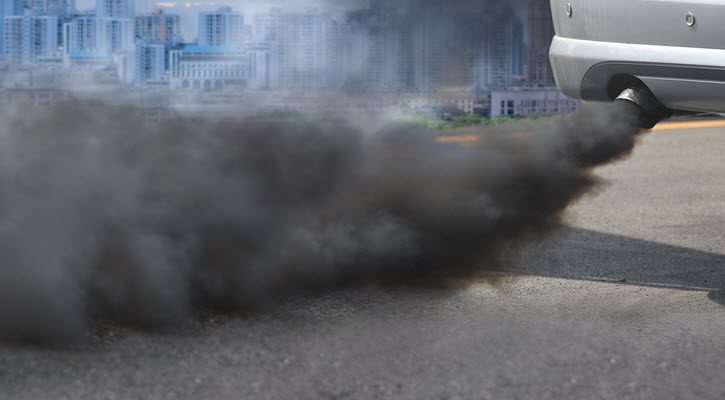A fuel pressure regulator is a small but vital component in your Mercedes’ fuel system. Its primary role is to maintain a consistent and optimal fuel pressure within the fuel lines. By doing so, it ensures the engine receives the right amount of fuel for efficient combustion. In a Mercedes, this component is meticulously engineered to work seamlessly with the engine’s fuel delivery system, making it a critical part for maintaining performance and fuel efficiency.
5 Reasons Your Mercedes Has Fuel Pressure Regulator Problems
Recognizing these symptoms can be the first step in addressing fuel pressure regulator problems. Ignoring them can lead to more significant issues and costly repairs. So, here are five common reasons why Mercedes fuel pressure regulators may encounter problems:
- Clogged Fuel System: Over time, fuel contaminants and impurities can accumulate in the fuel system, causing the fuel pressure regulator to become clogged. This can result in inconsistent fuel pressure, leading to engine performance problems.
- Worn Diaphragm: The fuel pressure regulator relies on a flexible diaphragm to control pressure. In some cases, this diaphragm can wear out due to age and usage. When it does, it may lead to erratic fuel pressure, causing engine misfires and poor fuel economy.
- Faulty Vacuum Lines: The fuel pressure regulator operates with the help of vacuum lines that supply or release pressure. If these vacuum lines develop leaks or cracks, it can disrupt the regulator’s ability to function correctly, causing fuel pressure issues.
- Excessive Heat: High temperatures under the hood of your Mercedes can impact the fuel pressure regulator’s longevity. Over time, the regulator may deteriorate due to constant exposure to heat, leading to malfunction.
- Fuel Quality: Poor-quality fuel or using the wrong type of fuel can result in deposits and impurities that accumulate within the regulator. This can lead to clogs, affecting its performance.
What are the Most Common Signs of Mercedes Fuel Pressure Regulator Issues?
Fuel pressure regulator problems can manifest in various ways, and it’s crucial to recognize these symptoms early to prevent further damage. Some common signs of a failing fuel pressure regulator include:
- Your Fuel Efficiency is Low: You may notice a significant drop in your Mercedes’ fuel efficiency. A malfunctioning regulator can cause the engine to receive too much or too little fuel, resulting in decreased miles per gallon.
- Your Mercedes is Rough Idling: A rough or inconsistent idle is a clear indicator of fuel pressure irregularities. Your engine might rev up and down unexpectedly, making the car uncomfortable to drive.
- You Notice Hesitation and Stalling: When the fuel pressure isn’t steady, your Mercedes may hesitate when accelerating, and in severe cases, it can stall, leaving you stranded.
- You See Black Exhaust Smoke: An overly rich air-fuel mixture caused by regulator issues can lead to black exhaust smoke, indicating incomplete combustion.
- The Check Engine Light is On: The onboard diagnostics system in your Mercedes may trigger a check engine light when it detects fuel pressure irregularities. This serves as an early warning system for potential issues.
What Will Happen if I Ignore Fuel Pressure Regulator Problems?
Neglecting a failing fuel pressure regulator can have several detrimental effects on your Mercedes-Benz:
- Damage to Your Engine: Inconsistent fuel pressure can lead to engine damage over time. Running too rich or too lean can cause overheating and wear and tear on engine components.
- Catalytic Converter Problems: A malfunctioning regulator can lead to excessive unburned fuel entering the exhaust system, which can damage the catalytic converter. Replacing this component can be a significant expense.
- Reduced Overall Performance: Your Mercedes’ performance will suffer if the engine doesn’t receive the right fuel mixture. It can lead to sluggish acceleration and a loss of power.
- More Emissions: Emission levels may exceed legal limits when the fuel mixture is not optimal. This can result in failed emissions tests, fines, or registration issues.
- Higher Costs for Fuel: Inefficient combustion due to a faulty regulator can significantly increase your fuel consumption, leading to higher fuel bills.
Recognizing the risks of ignoring fuel pressure regulator problems underscores the importance of addressing these issues promptly.

Need Help With Expert Mercedes-Benz Repairs?
Understanding the reasons for Mercedes fuel pressure regulator issues is crucial for maintaining your car’s performance and reliability. Ignoring these problems can lead to costly repairs and reduced enjoyment of your Mercedes. For expert assistance in addressing Mercedes fuel pressure regulator issues in Alpharetta, Chamblee, Cumming, Norcross, Dunwoody, Buckhead, Roswell, Atlanta, GA or Houston and Dallas, TX, contact the European Service Center.
Our team of experienced mechanics is dedicated to keeping your Mercedes in top condition. Don’t let fuel pressure regulator issues disrupt your Mercedes driving experience. Contact us today and ensure your Mercedes-Benz continues to deliver top-tier performance and luxury.



